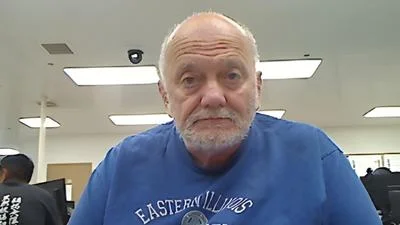A Chicago law firm wants to know why a recent Illinois workers' compensation ruling has been deemed "non-published" and therefore not fit for citing as precedent except in limited situations.
"We consider every ruling to be solid and have no true idea why our IL Appellate Court, WC Division files so many 'non-published' rulings that are actually 'published' on their website," the firm, Keefe, Campbell, Biery & Associates, posted on its website recently.
The court supported previous rulings that a worker did not have a reliable workers' comp claim because she had left her work site to conduct union-related business at an adjacent site and was injured on her way back to the job.

Eugene Keefe
According to the court order affirming the decision of an arbitrator, the Illinois Workers’ Compensation Commission and the circuit court of appeals, Mary Mitchell had been working for the Construction Cleaning Co. for four days before the injury occurred. She was a steward for Local Union No. 4. In her capacity with Construction Cleaning. Mitchell was assigned to clean kitchens and bathrooms in a newly constructed residential building. As a union steward, Mitchell was responsible for ensuring that the workers at the site were union members, which she did by requesting their union cards.
The building Mitchell was working on that day was situated on a cul-de-sac with other new residential buildings, though Construction Cleaning was contracted to clean only the one bulding. Mitchell testified that another union representative called her after her lunch break and asked for her assistance in checking the union status of workers at one of the other buildings. Mitchell testified that she asked for and received permission from her supervisor, whom she identified as "Trish."
After she had carded the workers at the other building, Mitchell said she slipped on ice while walking up a pathway to the door of the building she was assigned to. She testified that she asked for and received permission to leave for the day from Trish.
Representatives from Construction Cleaning contradicted Mitchell’s testimony, particularly in regard to her supervisor, whom the company president, Beata Bobowski, said was Lukasz Siemienkiewicz.
Siemienkiewicz testified that he was the only supervisor present that day, Mitchell did not report injuring her knee, worked a full day and was not given permission to leave the job site. Both Bobowski and Siemienkiewicz testified that there was no Trish, or similarly named employee, working at the site.
“In assessing the claimant’s credibility, the arbitrator found it 'troubling' that the claimant could not describe what Trish looked like and did not know Trish’s union affiliation, even though she was the union steward responsible for carding the workers on her job site,” the court order reads. “Instead, the arbitrator credited the testimony of Bobowski and Siemienkiewicz, who both testified that Siemienkiewicz was the foreman and that Construction Cleaning did not have any employees named Trish.”
Mitchell’s claim relied upon her proving that her injury “arose out of and in the course of her employment,” according to the order. In an attempt to fulfill these requirements, her suit alleged that going to the other site might have benefited Construction Cleaning, as the company could have bid on the contract if the workers at the site were not unionized. She also argued that she was returning to her place of work at the time of the injury.
The court noted that Mitchell, Bobowski and Siemienkiewicz’s testimony show that union stewards are responsible for the employees at their work sites, and it is uncommon for them to card workers at other sites, making Mitchell’s actions a personal errand, so the injury did not occur during the course of her employment.
In analyzing the case, Keefe, Campbell, Biery & Associates considered the ruling fair and grounded, but questioned why it can be cited as precedent only in a limited scope.
.jpg)




 Alerts Sign-up
Alerts Sign-up